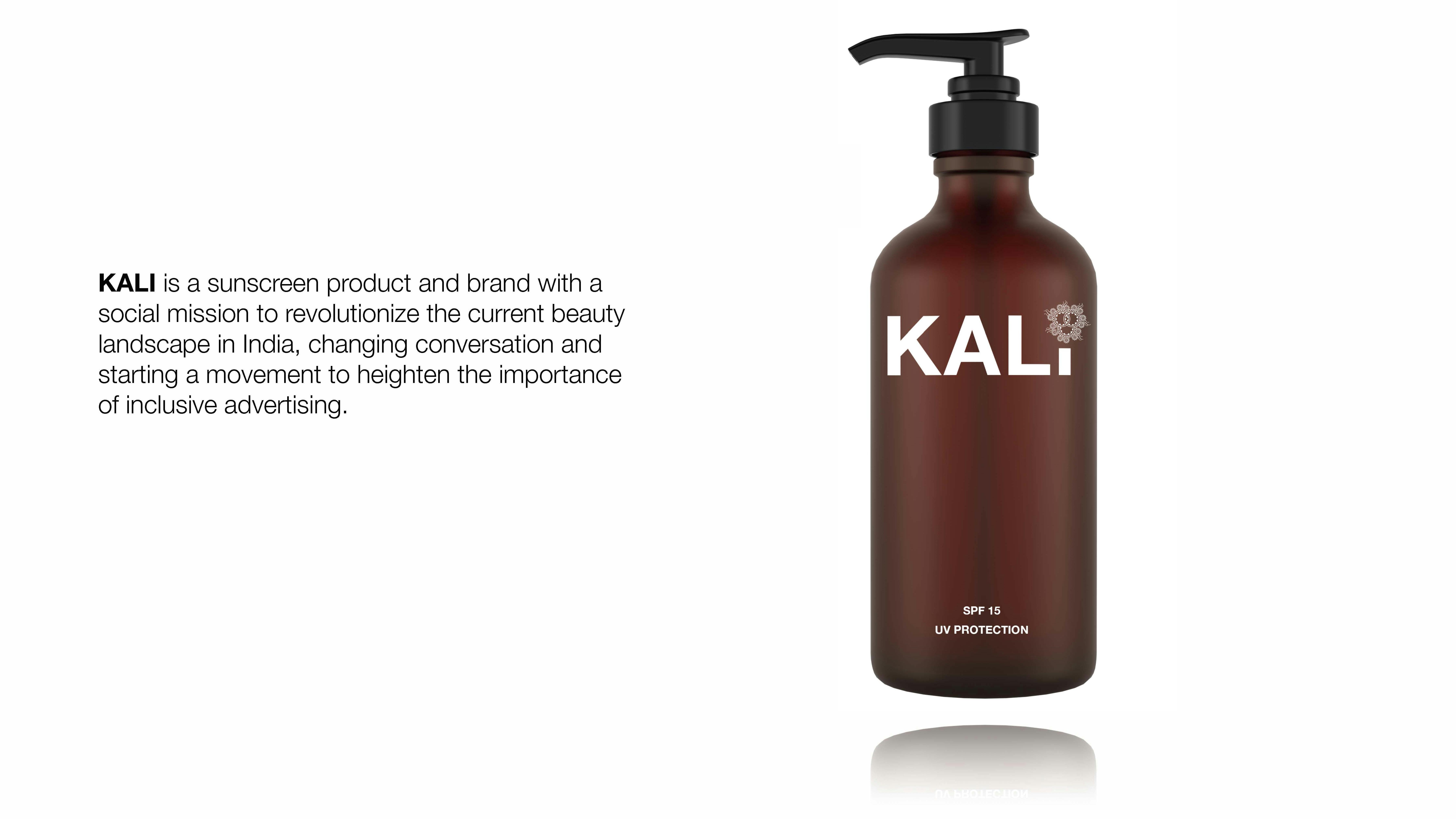KALI – Colorism in India

In 1975, Hindustan Unilever launched Fair & Lovely, a product that currently holds a 70 percent share of the skin-whitening market in India, a market that is valued at over $200M, according to European marketing media outlet The Drum. My project explores how colorism was historically propagated through colonization, then through post-colonial influences such as advertisements and media that promote fair skin as the norm.
My thesis introduces a product to empower those with brown skin. I conducted two focus groups, one with younger Millennial/Gen Z individuals, and one with an elderly population. The insights I gained from this research shaped my target market and branding. While all generations face colorism, the elderly weren't as open to change. The first wave of colorism came with colonization, followed by a post-colonial wave of insecurity from growing equality, traditionalism, misogyny, and propagation through media. The three methods I used to approach a solution were Inform, Create, Evoke. Inform is a collaborative social media effort, sharing the work of artists, activists, illustrators, and others who already challenge colorism in India. Create is a product that challenges existing brand efforts to change brown skin; it empowers Indians to embrace their skin. Evoke is a powerful response that will instigate acceptance through a social media campaign that creates impact and proposes product solutions.